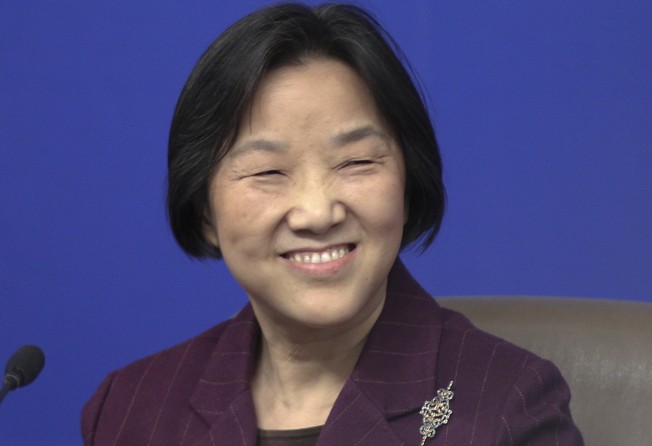China's Silk Road infrastructure fund explores investment exit strategies
Ways to ensure returns include cashing out through market listings and share transfers

China's US$40 billion Silk Road infrastructure fund will use stock market listings and government transfers as exit strategies for divesting, in order to ensure financial returns from its investments, its chairwoman says.
"When we make an investment decision, we will design an exit channel for it," Jin Qi, the fund's chief executive, told the Lujiazui Forum in Shanghai yesterday.
"For projects of good commercial value, we hope to cash out via market listings." The fund would also explore using government transfers and equity sales or selling the project back to the main businesses to achieve reasonable investment returns.
Beijing launched the Silk Road fund late last year as part of its plans to create the New Silk Road Economic Belt and the 21st Century Maritime Silk Road - collectively known as the "One Belt, One Road" initiative.
Beijing says the fund is modelled after the World Bank's investment arm, the International Finance Corporation, and maintains it is a for-profit entity rather than an aid agency.
In a comment seen as trying to assuage concerns about the fund's sustainability in its endeavour to support infrastructure projects in developing countries with high political and economic risks, Jin stressed the fund would devise a risk-control system to ensure due diligence was done in assessing projects.
"We will grapple with various kinds of risks in building the 'One Belt, One Road'," she said. "Risks will arise from politics, markets, operations, and for other unpredictable reasons."
There have been mounting worries about the returns from the fund's investments, as most of the states where the projects are sited are not developed and political turbulence could undermine their earnings outlook.
Capricious policymaking in those countries could prove a stumbling block to successful investments there, China Investment Corporation president Li Keping told the forum.
"In those countries that lack a complete legal system, there will be discretionary policy changes," the head of the country's sovereign wealth fund said. 'Therefore, uncertainties are increasing. Or, to be precise, risks are high."
Beijing is expected to splash out billions of dollars on infrastructure to connect some 60 countries along the "One Belt, One Road" routes with its economy, the world's second-largest.
The Silk Road fund secured its first investment deal in Pakistan earlier this year, becoming a shareholder of China Three Gorges South Asia Investment, which will construct the Karot dam on the Jhelum River.
China Railway Construction Corporation board secretary Yu Xingxi told the forum it would take a long time for investors to recover all their investments from the infrastructure works, which include roads, railways, ports and airports.
"We will badly need support from powerful financial institutions," he said.
The fund's investors include China Investment Corporation, the Export-Import Bank of China and China Development Bank.